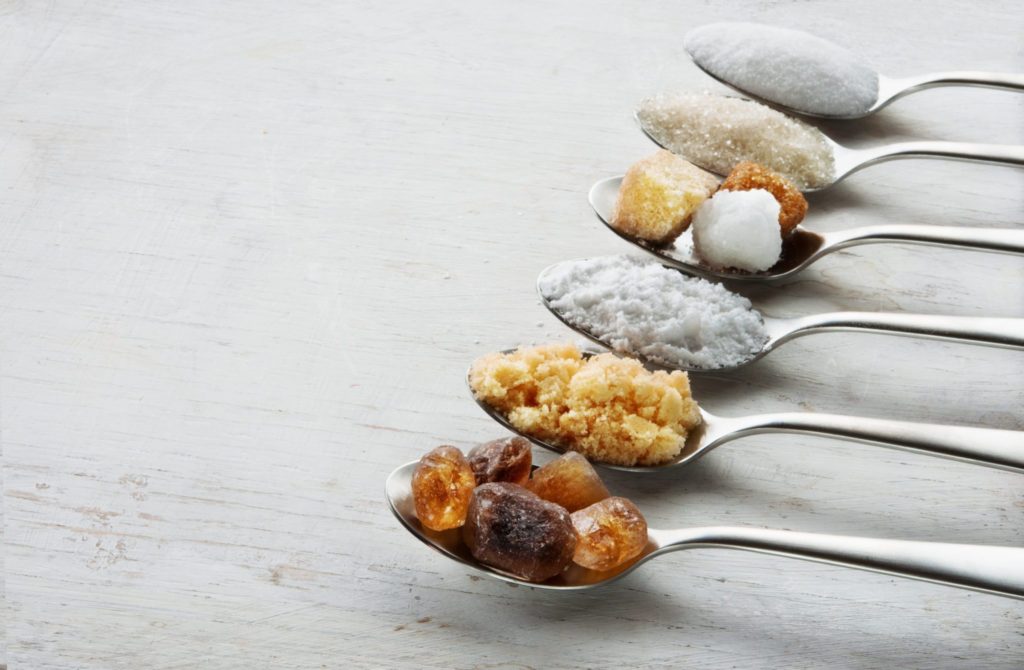The Not So Sweet Side of Sugar

If you have a sweet tooth, chances are you might eventually need cosmetic dentistry in McKinney. We say that not because Dr. Lawrence and the rest of our staff at McKinney Smiles don’t enjoy the occasional chocolatey treat, but because of what a growing amount of research has to say about sugar. In recent years, a growing amount of studies have found disturbing evidence about how sweeteners – especially those found in processed foods and soft drinks – can have on our bodies when consumed in excess.
In addition to increasing our risk of tooth decay and gum disease, excess sugar consumption has been shown to have a long-term impact on our health in some surprising ways.
- Fatty liver. Our intestines play an important role in breaking down the sugars we consume into two parts: fructose, which the liver mostly metabolizes; and glucose – or blood sugar – which our cells metabolize and turn into fuel. When sugar becomes too large a part of our diets, an overworked liver begins transforming fructose into fat, spurring the development of non-alcoholic fatty liver disease that’s been linked to both diabetes and obesity.
- Weight gain. The added sugars found in processed foods and sodas offer no nutritional value to our bodies. Since snacks like cookies, cakes and candy bars have few essential nutrients like minerals, fats or vitamins, they don’t leave you feeling very full once you’ve finished eating them. In fact, your body processes the sugars so quickly you actually start to crave more so called “empty calories.” This leads to eating more sweets and continuing the cycle. Unfortunately, unless you burn off empty calories through exercise, they get stored as fat and you start shopping for bigger pant sizes.
- Type 2 diabetes. The pancreas produces insulin, which is a hormone that allows glucose to enter our cells. An excess of blood sugar can be toxic, so insulin levels go up to process this potential threat. Unfortunately, our bodies can become insulin resistant when sugar is consumed in large amounts. When the body builds up a sufficient insulin tolerance the hormone no longer functions like before. This leads to the development of type 2 diabetes, as the pancreas can no longer produce enough working insulin to keep blood sugar at a safe level.
- Heart disease. Too much fructose in the body can also cause a drop in good cholesterol levels while simultaneously increasing bad cholesterol levels. The higher the levels of bad cholesterol in our systems, the more triglycerides travel to the arteries which both increases the risk of stroke and heart attack.
- Mood and brain disorders. Our blood sugar spikes whenever we consume something sweet – resulting in a sugar rush – but the resulting crash can cause mood swings, fatigue and metal fog. Studies have found that Americans whose diets contain a high amount of processed foods – which often have a high sugar content – have a greater risk of developing depression.
- Cancer. Insulin is one of the hormones linked to the spread of cancer cells in the body. This suggests that spikes in insulin from sugar consumption can encourage the growth of cancerous cells. Studies have even found specific links between sugar consumption and colon and breast cancer.
- Tooth decay. While the old adage that sugar rots your teeth isn’t exactly true, sugar does feed the harmful oral bacteria responsible for tooth decay. Plaque thrives on fermentable carbohydrates such as those found in starch and sugar. Patients with diets high in pastas, breads and sugars have a significant increase in the risk for tooth decay and gum disease.
- Addiction. A recent study found that sugar is even more addictive than cocaine. That’s because eating sugar causes a release of dopamine – a neurotransmitter that causes good feelings – to surge in the reward area of the brain. The more sugar you eat, the more desensitized the reward center becomes, which means you need to eat more sugar to reach that high.
So if you want to avoid needing cosmetic dentistry in McKinney, we recommend moderation as the best course of action. Cutting all processed sugar from a diet seems unrealistic, but making smarter decision about what we eat and how much sugar we consume can go a long way towards protecting our oral and overall health.
